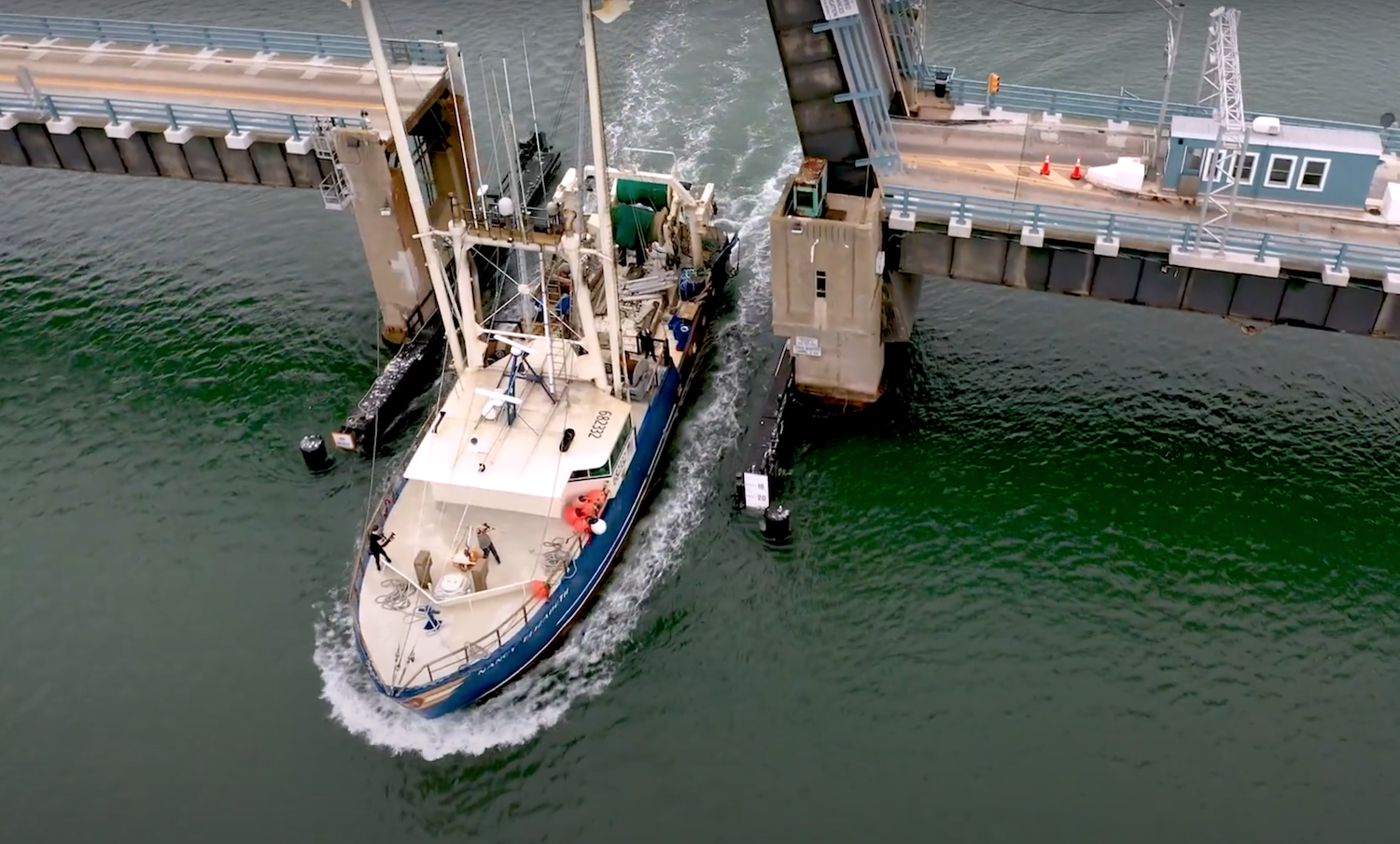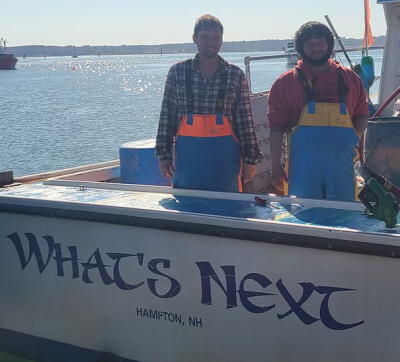Atlantic herring fishermen are asking the U.S. Supreme Court to reject a requirement that they pay for fishery observers at sea, at costs that can exceed $700 a day.
The fishermen’s petition to certify looks to bring their earlier lawsuit against the U.S. Department of Commerce and National Marine Fisheries Service to the high court, after they lost in a federal appeals court.
“We are fighting for our livelihoods and a future that is being unfairly targeted by federal overreach,” said Stefan Axelsson, a third-generation fisherman and captain of one of the vessels in the lawsuit, in a statement from the fishermen and their lawyers on Nov. 10. “These rules could force hardworking fishermen to surrender a significant part of their earnings.”
The lead plaintiff in the lawsuit, Loper Bright Enterprises of New Jersey, is associated with several fishing vessels and companies based at Cape May, N.J. The group has fought back against a 2020 rule from the National Marine Fisheries Service that forced vessel operators to pick up the tab for daily at-sea observer coverage. Fishermen say Congress should fund the program.
“Making these vessels pay to have the observer coverage on them just decreases hardworking fishermen’s wages and makes it less attractive for vessels to continue,” said Wayne Reichle, president of Lund’s Fisheries of New Jersey and an owner of two of the boats that are plaintiffs in the case. “In some cases, it prevents them from fishing.”

NMFS says it will suspend the industry-funded monitoring program in April 2023 because the agency does not have funding for its own administrative costs. The fishermen’s appeal to the Supreme Court seeks to prevent mandatory monitoring payments from returning in the future.
“I’m on such a small margin now, that I don’t know if the (herring catch) quotas shrink if I’m going to be able to do this,” said Cape May fisherman William Bright in a video produced by Cause for Action.
The fishermen’s lawyers say their Supreme Court effort aims for bigger fish: reining in the power of U.S. executive branch agencies.
Led by Paul Clement, who was U.S. solicitor general, and the top executive branch lawyer during the George W. Bush administration, the legal team aims to attack a legal doctrine known as the “Chevron deference.”
U.S. Department of Justice lawyers defending against the fishermen’s lawsuit have called the decades-old Chevron case law as “principles to determine the extent to which a court reviewing agency action should give deference to the agency’s construction of a statute that the agency has been delegated to administer.”
The herring fishermen’s cause was adopted by the Cause for Action Institute in Arlington, Va., which calls itself a “non-profit working to enhance individual and economic liberty by limiting the power of the administrative state to make decisions that are contrary to freedom and prosperity by advocating for a transparent and accountable government free from abuse.”
The Cause for Action lawyers argue the Chevron rule “has allowed Congress to outsource lawmaking to executive agency employees. That standard has all but guaranteed government victories in regulatory cases by giving unelected bureaucrats carte blanche for rulemaking without congressional approval.”
NMFS had no authority from Congress to mandate herring fishermen pay for at-sea monitors, but went ahead and imposed that requirement through its own rulemaking system, Clement and his legal team say.
“If Congress didn’t put it in there, Congress didn’t want to,” Clement says in the Cause for Action video. While the fishermen lost their last case in a split decision by the District of Columbia Circuit Court of Appeals, there is a chance “Chevron is on life support,” said Clement.

In his dissent in that appeals court ruling, Judge Justin Walker wrote that “Congress can make profitable fishing even harder by forcing fishermen to spend a fifth of their revenue on the wages of federal monitors embedded by regulation onto their ships. But until Congress does that, the Fisheries Service cannot.”
“Congress did not give NOAA the power to outsource the costs of at-sea monitors,” said Ryan Mulvey of the Cause of Action Institute. “It is time for the Supreme Court to do away with Chevron and return lawmaking to its rightful place in Congress and statutory interpretation to its rightful place: the judiciary, not the executive branch.”
Clement is also pushing for a federal appeals court hearing on the contentious NMFS rules for protecting endangered North Atlantic right whales. The Maine Lobstermen’s Association filed its first brief in that appeal this week.







